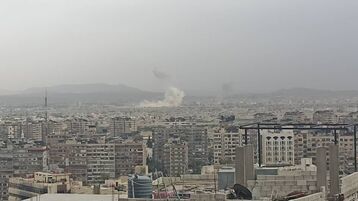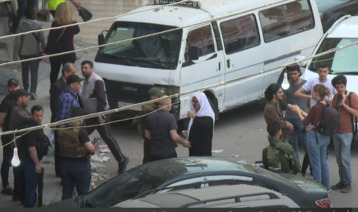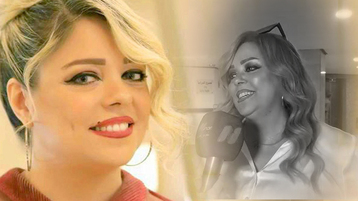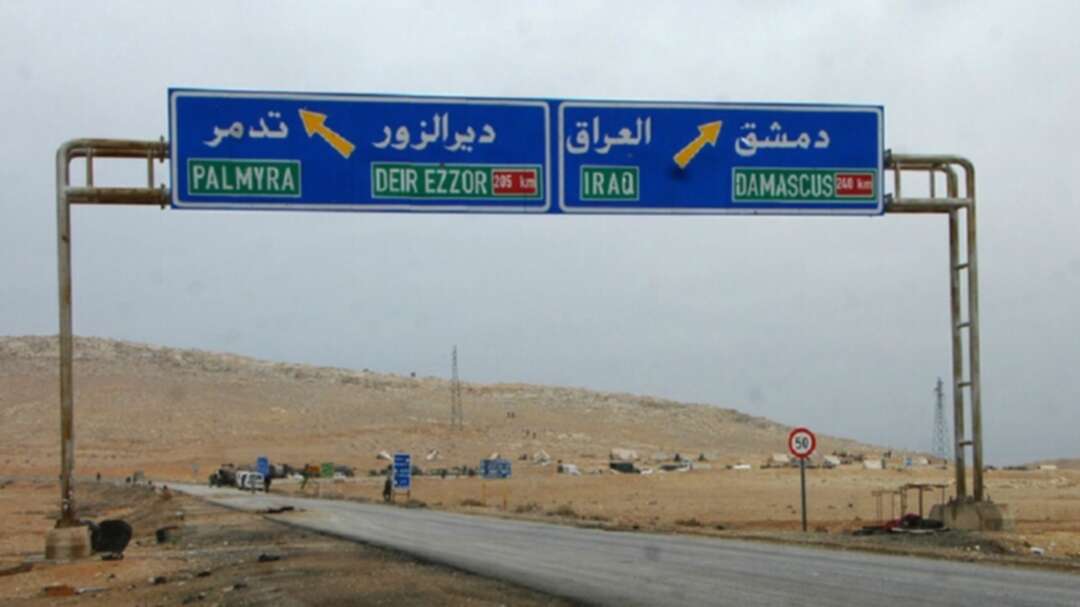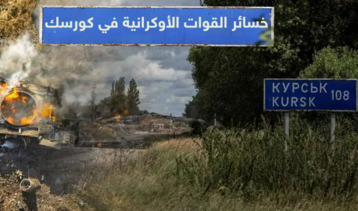-
Plastic left by campers in UAE’s deserts is killing camels: Vet researcher
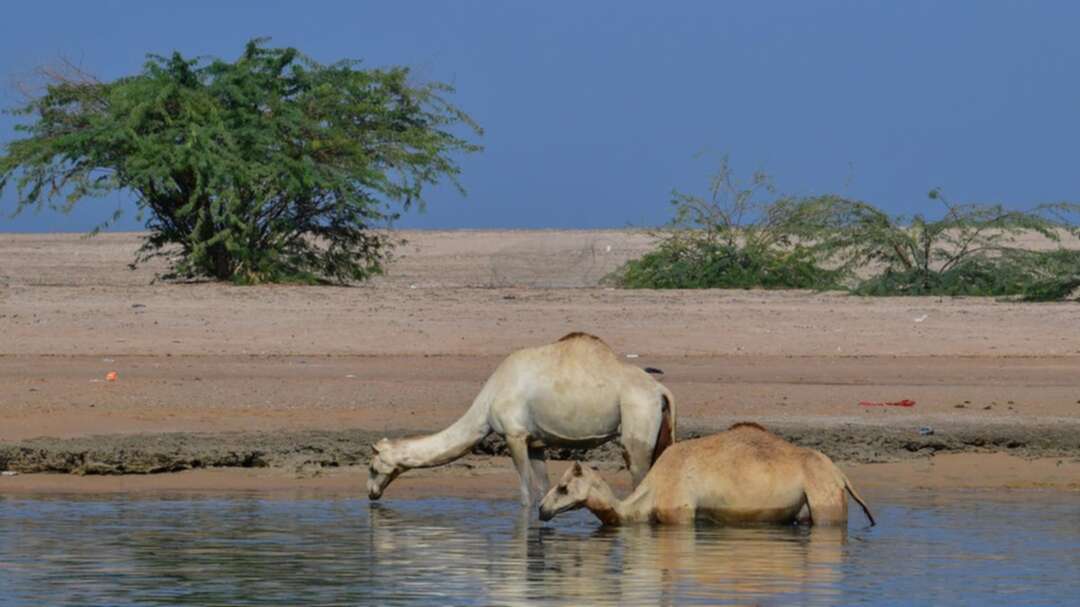
Campers and picnickers escaping the city and heading into the desert are leaving behind plastic pollution, which is killing scores of camels in deserts across the United Arab Emirates, according to a leading veterinary researcher.
Dr Ulrich Wernery, a veterinary microbiologist in Dubai and head of the emirate’s Central Veterinary Research Laboratory, said many camels have died due to the ingestion of plastic that has amassed over time in their digestive tracts.
“There is a number of animal fatalities - not only in camels, but also turtles, gazelles and in sheep - caused by plastic ingestion,” Dr Wernery told Al Arabia English. “It is far from good.”
“Since the COVID-19 pandemic there is even more trash discarded in the desert, in our experience, as more people try to avoid the city - especially at weekend - and go in the desert for caping or bbq-ing and you see places that I cannot describe.
“It is so bad.”
While campers and picnickers leave trash in the desert, due to high winds and the open environment, plastic bags and other plastic pollution can also blow into the desert from landfills.
As the dromedaries roam the desert, they munch on plastic bags, other trash, and plastic pollution that has drifted into sand dunes or into trees.
 Dr Ulrich Wernery, a veterinary microbiologist in Dubai and head of the emirate’s Central Veterinary Research Laboratory, said many camels have died due to the ingestion of plastic that has amassed over time in their digestive tracts.(Stock photo)
Dr Ulrich Wernery, a veterinary microbiologist in Dubai and head of the emirate’s Central Veterinary Research Laboratory, said many camels have died due to the ingestion of plastic that has amassed over time in their digestive tracts.(Stock photo)Single use plastics, such as plastic bags, often wind up in camel stomachs, which kills the dromedaries slowly by blocking their intestines, tearing at organs, and creating bacterial infections.
Absorbing plastic can also lead to ulcers which causes tremendous discomfort for the desert animal. Also, since they are forced to feel constantly full, they end up not eating enough food and this can cause intestinal bleeding, blockages, dehydration, malnutrition and death, said the veterinary specialist.
Dr Wernery led a research team into the cause of camel deaths in the region for a study, ‘The plight of camels eating plastic waste,’ which was published in the Journal of Arid Environments earlier this year.
Since 2008, Wernery’s team has examined 3,000 dead camels. Of these, one per cent – or 300 camels - had guts packed with plastic.
These camels had a ‘polybezoar’ type of ingestion – a term used to define a tightly packed collection of indigestible materials such as plastics that is strapped in the stomach or digestive tract, causing a large stone-like mass.
During their studies, the team found a camel which had upwards of 200 plastic bags packed into its stomach.
Plastic, warns Dr Wernery, is a not a problem limited to the ocean.
Banning plastic bags and other single-use plastics is essential for preserving the specials and other animals, he said.
“The UAE has to ban single use plastic bags as the first step. It is so important.”
source: Jennifer Bell
Image source: AFP
Levant
You May Also Like
Popular Posts
Caricature
BENEFIT Sponsors BuildHer...
- April 23, 2025
BENEFIT, the Kingdom’s innovator and leading company in Fintech and electronic financial transactions service, has sponsored the BuildHer CityHack 2025 Hackathon, a two-day event spearheaded by the College of Engineering and Technology at the Royal University for Women (RUW).
Aimed at secondary school students, the event brought together a distinguished group of academic professionals and technology experts to mentor and inspire young participants.
More than 100 high school students from across the Kingdom of Bahrain took part in the hackathon, which featured an intensive programme of training workshops and hands-on sessions. These activities were tailored to enhance participants’ critical thinking, collaborative problem-solving, and team-building capabilities, while also encouraging the development of practical and sustainable solutions to contemporary challenges using modern technological tools.
BENEFIT’s Chief Executive Mr. Abdulwahed AlJanahi, commented: “Our support for this educational hackathon reflects our long-term strategic vision to nurture the talents of emerging national youth and empower the next generation of accomplished female leaders in technology. By fostering creativity and innovation, we aim to contribute meaningfully to Bahrain’s comprehensive development goals and align with the aspirations outlined in the Kingdom’s Vision 2030—an ambition in which BENEFIT plays a central role.”
Professor Riyadh Yousif Hamzah, President of the Royal University for Women, commented: “This initiative reflects our commitment to advancing women in STEM fields. We're cultivating a generation of creative, solution-driven female leaders who will drive national development. Our partnership with BENEFIT exemplifies the powerful synergy between academia and private sector in supporting educational innovation.”
Hanan Abdulla Hasan, Senior Manager, PR & Communication at BENEFIT, said: “We are honoured to collaborate with RUW in supporting this remarkable technology-focused event. It highlights our commitment to social responsibility, and our ongoing efforts to enhance the digital and innovation capabilities of young Bahraini women and foster their ability to harness technological tools in the service of a smarter, more sustainable future.”
For his part, Dr. Humam ElAgha, Acting Dean of the College of Engineering and Technology at the University, said: “BuildHer CityHack 2025 embodies our hands-on approach to education. By tackling real-world problems through creative thinking and sustainable solutions, we're preparing women to thrive in the knowledge economy – a cornerstone of the University's vision.”
opinion
Report
ads
Newsletter
Subscribe to our mailing list to get the new updates!

